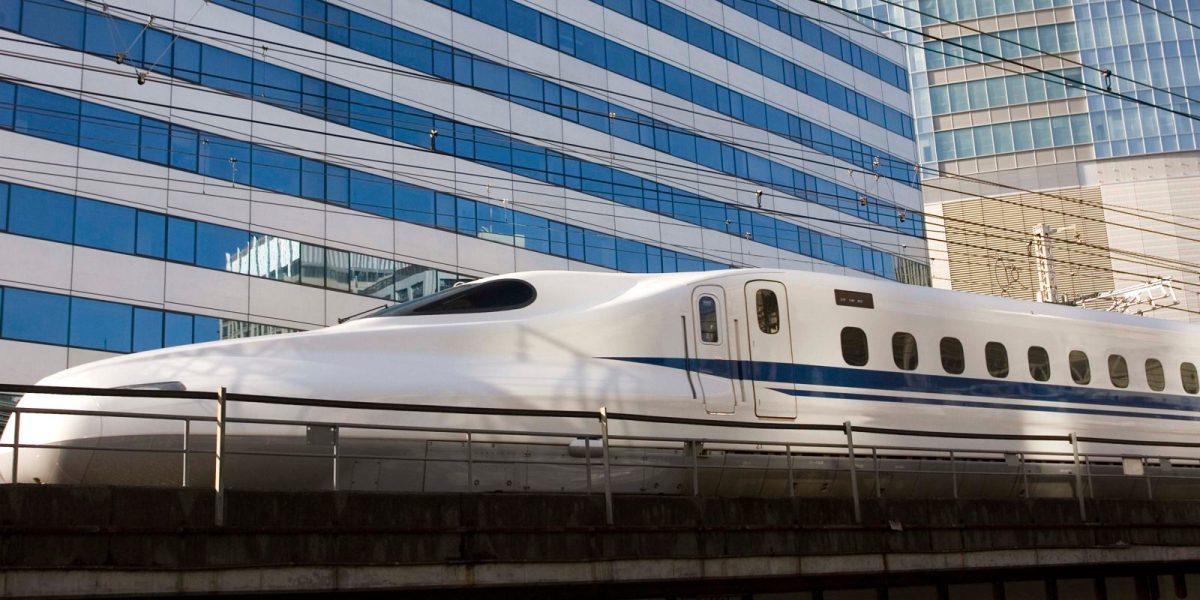The Bullet Train that will make transportation from Dallas to Houston less than 90 minutes is causing debates between landowners and people working with business and mass transportation.
After a nationwide analysis, it was determined there is a high demand for a new and faster mode of transportation, according to Texas Central High-Speed Railway. The construction of the Bullet Train that will travel from Dallas to Houston will begin next year and is estimated to have a grand opening in 2024.
“Travel by train is incredibly energy efficient,” Texas Central Vice President of External Affairs Travis Kelly said. “The train provides a green alternative to driving or flying, which is very important as more people come to Texas and look for more and better ways to move around the state. The train is also incredibly quiet and only requires a minimal footprint to move a high number of people using a small piece of land.”
The Texas and Southwest Cattle Raisers Association (TSCRA) is the largest and oldest livestock organization in Texas has been around for 140 years, and has voiced concern about the Bullet Train. The TSCRA works to inform the public about forces that threaten ranches across Texas and America’s Southwest.
“Our association is very concerned about the Bullet Train,” TSCRA Executive Director of Public Affairs Jason Skaggs said. “We obviously recognize the need of new infrastructures with all of the people moving to Texas. However, we are concerned about the impact that the train is going to have on numerous landowners and the funding of this project.”
Although this Bullet Train might be an efficient mode of transportation, it doesn’t mean it will not affect the owners of the land in which it is going to be built on, according to Skaggs. Although he does not own land that will be affected, Skaggs said he feels the train is an unfair destruction of land and property.
“The Bullet Train is going to have a very dramatic effect on landowners,” Skaggs said. “We have many of our members and our board members that are affected. Some of these people have had this land in their family since the original Stephen F. Austin group of settlers. I’ve looked into their eyes and seen the pain and trouble this is causing them and their families.”
According to Kelly, Texas Central is speaking with worried landowners to come to an agreement.
“We have been working with landowners and other stakeholders to understand their concern,” Kelly said. “There have been very productive and understanding conversations.”
Kyle Workman is the President of Texans Against High-Speed Rail, an organization founded in 2015 that has actively lobbied against the bullet train project. Workman said the train’s limited areas of service and potential for high ticket pricing could also prevent barriers to access for the majority of Texans.
“With an enormous infrastructure expense, this will prohibit a vast majority of people in the state from riding it because the tickets will be so expensive” Workman said. “People would not want to give up traveling in their cars because you can travel in your car for less money and have your car to your intended destination plus it would cost less overall.”
However, Kelly said the availability of seating and frequency of departures should aid in lowering the costs of tickets.
“There have been rumors about the price being too high in price and that it will not appeal to many Texans,” Kelly said. “There will be 400 seats on every train with many trains leaving the station every single day. Therefore, giving the ability to price tickets to make it available to everyone who wants to ride.”
Workman said one of his concerns is this new development will impact the people and land between Dallas and Houston.
“The railroad affects both me and you because if the train ends up being built, we will end up subsidizing it,” Workman said. “They are specifically seeking a model called ‘Build. Operate. Transfer.’ The idea is that they get it built privately using federal government loans and grants and then you operate the train until it shows negative profits. Then the federal or state government will come, take it over and subsidize it.”
As an agricultural state, Texas is home to many opponents of the High-Speed Railway, according to Workman.
“The Farm Bureau, Texas and Southwest Cattle Raisers Association, Texas Wildlife Association and the counties affected all disagree with the development of the Bullet Train,” Workman said. “Even the student body at Texas A&M University has passed a resolution about it because they know the harm it would inflict on our heritage as Aggies. We know that the ‘A’ in A&M is for agriculture and so we can’t forsake the people who put food on our tables for an amusement ride between Dallas and Houston.”
Bullet Train set for 2024 causes controversy
February 15, 2018
0
Donate to The Battalion
$1765
$5000
Contributed
Our Goal
Your donation will support the student journalists of Texas A&M University - College Station. Your contribution will allow us to purchase equipment and cover our annual website hosting costs, in addition to paying freelance staffers for their work, travel costs for coverage and more!
More to Discover










